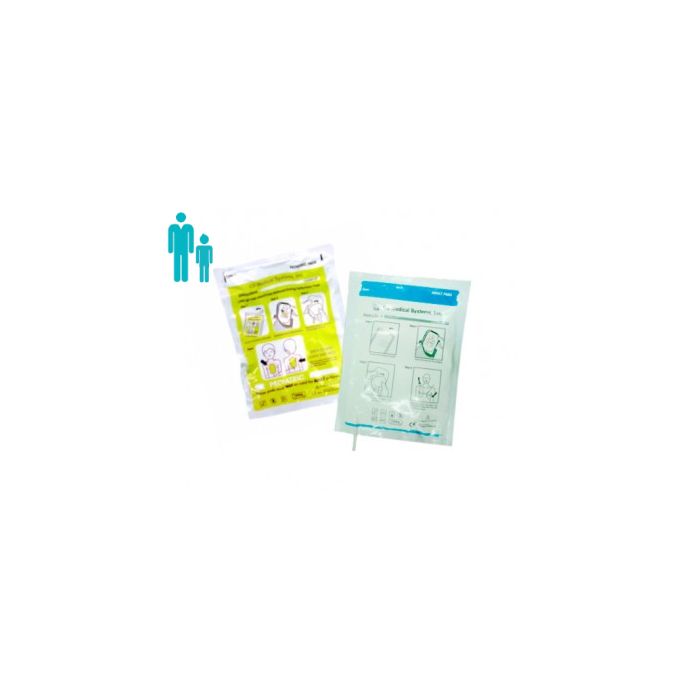CU Medical iPad NF-1200/1201 Adult and Paediatric Pad Bundle (2 sets)
In stock
Without defibrillation of the heart and effective CPR, a patient’s survival chance decreases significantly. This is why it is imperative to know how to perform the life-saving treatment required by those in cardiac arrest. In the exclusive defibshop family packs, you will receive a set of both adult and paediatric electrode pads.
Key Features
- Both pad sets are for use with the i-PAD NF1200/NF1201 defibrillator
- Super sticky conductive adhesive ensures the pads will not move during the rescue treatment
- Paediatric pads lower the joule output to a safer level for the heart of a child
- Clear images on pads display where the pads need to be placed on the patient’s chest, ensuring rescuers of every level can deliver treatment quickly
Electrode pads create the bridge between the patient and the defibrillator, meaning a life-saving shock can be delivered, if required. By having adult and paediatric electrode pads in your rescue kit, you can have confidence that you will be able to assist in a cardiac emergency, regardless of the patient’s age.
What's Included
- 1 set of iPad NF-1200/NF1201 Adult Pads
- 1 set of iPad NF-1200/NF1201 Paediatric Pads
More Information
If you would like to learn more about the iPad NF-1200/NF1201 Adult and Paediatric Pads Family Pack or any other product on our website, then please do not hesitate to get in contact with the defibshop team.
Call 0161 776 7422 to get in contact with the team where one of our friendly experts will assist you.
| Defib Brand | iPAD (CU Medical) |
|---|---|
| Pad Life | Up to 2 years |
| FDA Approved | No |
| Dangerous Goods | No |

